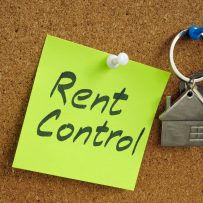PROVINCE GRANTS VANCOUVER’S REQUEST TO CAP RENT HIKES IN SROS

Richard Schwab, an SRO tenant and president of the SRO Collaborative Society, said in a statement: “This is such a huge relief for low-income tenants who are really scared of becoming homeless right now.”
This action comes two years into the City of Vancouver’s legal battle for its ability to implement tighter rent controls in single-room occupancy buildings, or SROs, which are often known as “housing of last resort” for low-income people at risk of homelessness.
In an effort to respond to quickly rising rents in privately owned SROs, the city adopted new bylaws in late 2021 tying maximum allowable rent increases in these buildings to the room, instead of to the tenant, thereby limiting landlords’ ability to increase rent for a new tenant when a resident moves out.
The owners of two SRO buildings took the city to court, arguing those rent control bylaws were outside the city’s authority and should be quashed. The B.C. Supreme Court agreed with the landlords, as did the B.C. Court of Appeal in February. In April, the city announced it would appeal to the Supreme Court of Canada.
Once B.C.’s legislative change takes effect, it appears likely to render the legal dispute moot. But the city didn’t immediately respond to a request for comment Monday on what will happen with the court application.
Kahlon, replying to a question about Vancouver’s legal challenge, said the city “will have to continue figuring out if they have to take additional steps.”
Some housing advocates have long argued that vacancy controls should be implemented across all kinds of rental housing, but Kahlon and the B.C. NDP have said they don’t support applying the policy broadly for fear of discouraging future housing construction.
“Without SROs, individuals would be on the street. Immediate action is needed to prevent another 1,000 people from potentially facing homelessness by September,” Sim said in his statement.
Sim said that while Monday’s announcement was “an important step forward, it is a temporary solution,” and the city needs senior levels of government to provide more affordable housing to keep people out of homelessness.
Story by: Vancouver Sun


